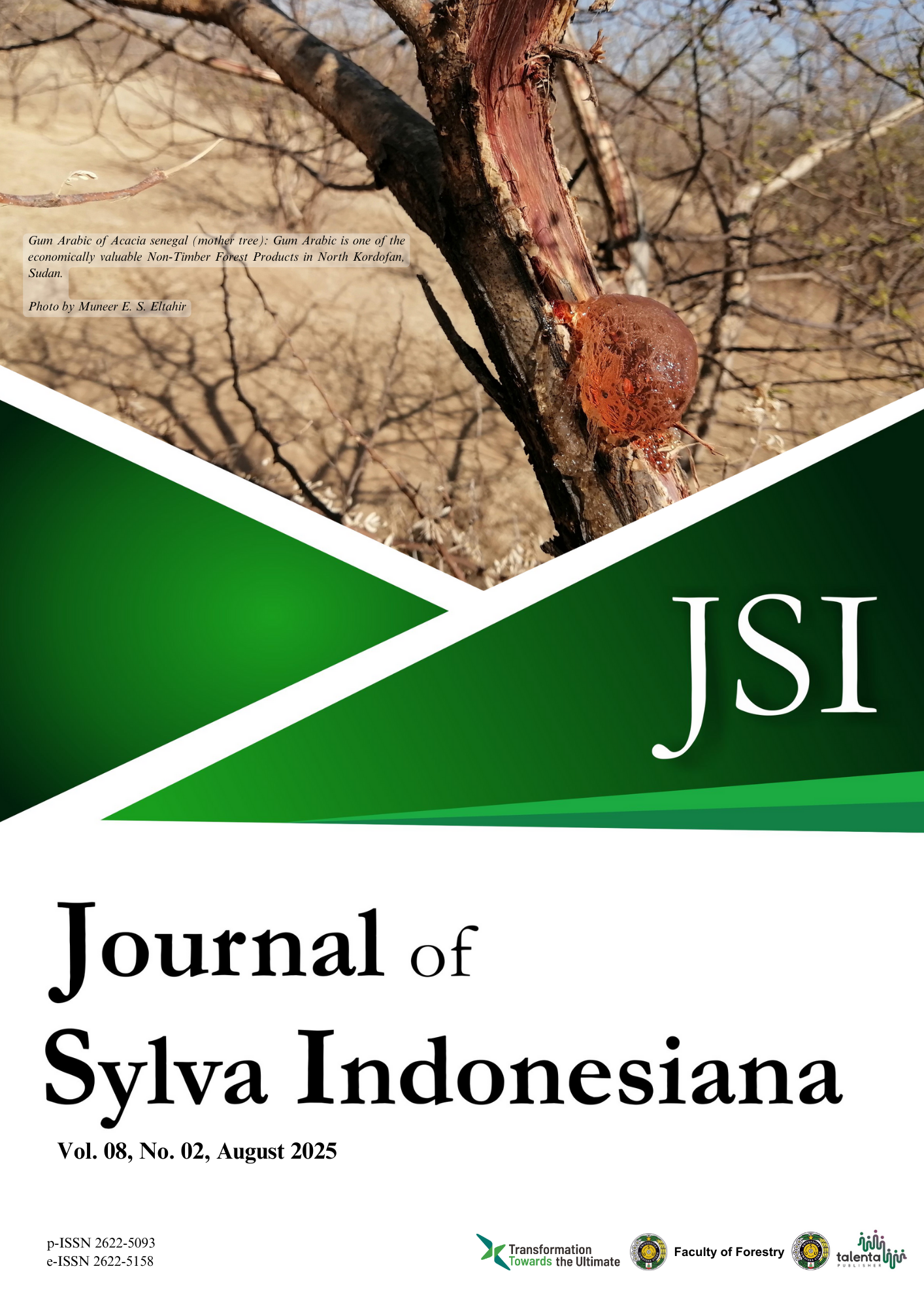Efficiency of Timber Skidding Operation in Pasoh Forest Jelebu, Peninsular Malaysia
DOI:
https://doi.org/10.32734/jsi.v8i2.20024Keywords:
timber skidding operation, efficiency, time consume, productivity, Jelebu, Peninsular MalaysiaAbstract
Timber skidding is one of the most important elements of forest harvesting. The forest harvesting process includes all operations from tree cutting and logging to a mill, rail depot, or ship dock. Efficiency is the ability to avoid wasting materials, energy, efforts, money, and time in doing something or in producing a desired result. For skidding operation, widely using crawler tractors as a medium in transporting logs to the temporary log yard requires attention from many sides. This is because it may affect productivity and the time consumed to do the work. The objective of this study was to analyze the relationship between distance, time, and productivity of skidding operation by crawler tractor and take place at Compartment 65 and 66 Pasoh Forest Reserve, Jelebu, Peninsular Malaysia. Thus, in this study, the distribution of work elements on time consumption shows that skidding seems to consume more time compared to other processes, since crawler tractor workers manually do the work. As a result, the average volume per trip, productivity, and time for skidding using a crawler tractor at the initial skidding area close to the landing are 27.74 m3, 54.65 m3, and 13.5 minutes, respectively. The total distance travelled by the crawler tractor to handle the load also influenced the efficiency of time and consequently affected the rate of productivity. The harvesting operation in Pasoh Forest Jelebu, Negeri Sembilan, Peninsular Malaysia is still well managed to produce timber products, and the skidding operation in this site is efficient and productive. As the suggestion, more study need to be conducted in vary in term of distances, times, and volumes, and in various conditions representing the timber skidding operation in this area.
Downloads
References
Bradshaw S. Murphy, “Review of Factors Affecting Disturbance, Compaction Trafficability of Soils West Western Australia,” Department of Conservation L Management SFM Technical Report, vol. 2, pp. 160, 2005.
S. Ahmad, J. Brodie, J. Sessions, “Analysis of Two Alternative Harvesting Systems in Peninsular Malaysia: Sensitivity Analysis of Costs, Logging Damage Buffers,” Journal of Tropical Forest Science, vol. 11, no. 4, pp. 809–821, Desember 1999.
R. Naghdi, A. Solgi, E. R. Labelle, E. K. Zenner, “Influence of Ground-Based Skidding on Physical Chemical Properties of Forest Soils Their Effects on Maple Seedling Growth,” European Journal of Forest Research, vol. 135, no. 5, pp. 949–962, September 2016. doi:10.1007/s10342-016-0986-3.
R. Spinelli, B. R. Hartsough, N. Magagnotti, “Productivity Stards for Harvesters Processors in Italy,” Forest Products Journal, vol. 60, no. 3, pp. 226–235, Maret 2010.
F. Berendt, M. Fortin, C. Schomel, J. Schwier, “Productivity, Costs, Selected Environmental Impacts of Remote-Controlled Mini Forestry Crawlers,” Journal of Environmental Science, vol. 9, no. 10, pp. 591–602, Oktober 2018. DOI:10.3390/F9100591
Downloads
Published
How to Cite
Issue
Section
License

This work is licensed under a Creative Commons Attribution-ShareAlike 4.0 International License.



















